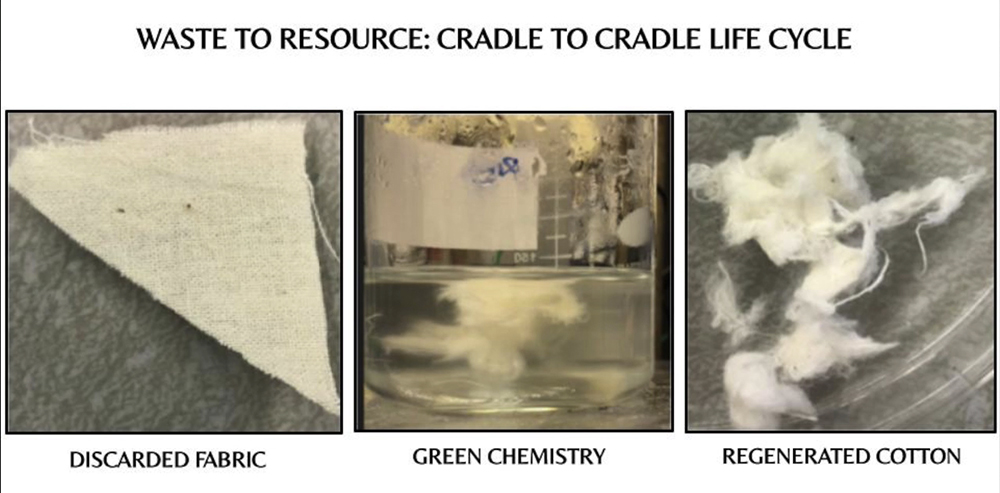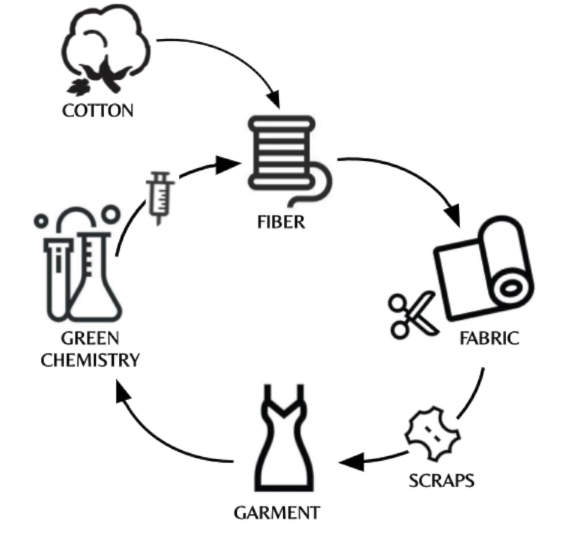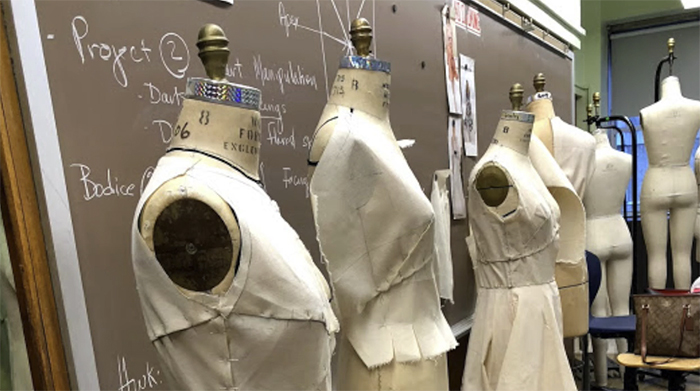More
Purpose/Impact
Textile waste presents a major burden on the environment, contributing to climate change and chemical pollution as toxic dyes and finishing chemicals enter the environment through landfill leachate. Moreover, the majority of textile waste reaching landfills is discarded clothing, which could be reused or recycled. The research team is investigating the chemical degradation of cotton textiles as a precursor for reintegration into a circular materials economy.
Green chemistry strategies to break down natural fabric waste into feedstocks for reconstituted fibers has tremendous potential to move towards zero waste economies based on cradle to cradle design strategies. About one third of the cotton muslin used at educational fashion institutions in the fashion design sewing, draping and pattern making classes, goes to waste. The cotton muslin used in the classrooms is undyed and unbleached, making it an excellent resource for developing green methods to breakdown natural fibers to cellulosic feedstock.


Outcomes/Accomplishments
The FIT/SBU team are researching an environmentally-benign degradation process to reconstitute muslin waste to produce precursor materials for textiles. Low impact green chemistry methods are required to facilitate the rational design of textile waste regeneration. Our preliminary results have shown that a low temperature citric-acid based process can physically, and to a lesser extent chemically, degrade muslin cotton fabric over a range of weave densities to create a potential feedstock from textile waste. The successful outcomes of the project will provide a method for cotton muslin waste green chemistry degradation procedures. The research project will directly mitigate the environmental impact of the textile industry at every strata-from classroom to global industry: non-toxic chemical application, reduce the cost and environmental impact of waste treatment including chemical dissolution and incineration of waste material.
Status Update
The Waste to Resource project was awarded a grant from the National Science Foundation’s Environmental Sustainability program (2020). The principal investigators are Theanne Schiros and Asta Skocir, (both of whom are co-founders of Algiknit), along with Gary Halada and Taejin Kim in the Materials Science and Chemical Engineering Department at Stony Brook. The project involves student-led research to promote circularity in the fashion industry.
The team is in the final stages of submitting a manuscript to the Fashion and Textiles International Journal of Interdisciplinary Research.




